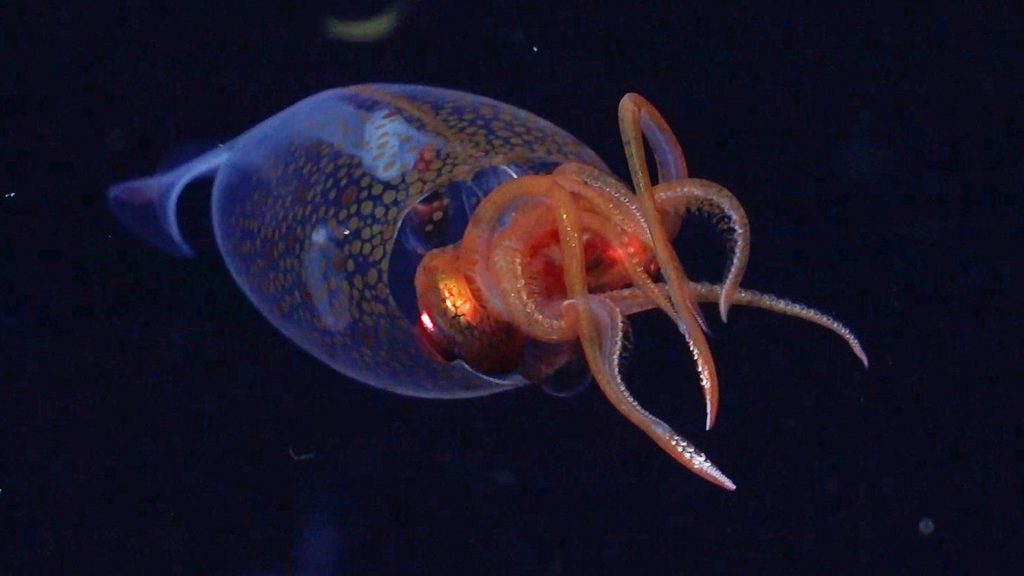A significant breakthrough in marine biology has been achieved as a colossal squid has been captured on camera for the first time in the deep sea. This remarkable event was made possible by an international team of researchers who operated a remotely controlled submersible. The footage was officially announced by the Schmidt Ocean Institute on Tuesday.
The squid, a juvenile measuring approximately 1 foot (30 centimeters) in length, was filmed at a depth of 1,968 feet (600 meters) in the South Atlantic Ocean. In contrast, adult colossal squids can grow to an astonishing size of up to 23 feet (7 meters), making them comparable in length to a small fire truck. These massive creatures are known to be predators and have been found in the stomachs of various marine animals, including whales and seabirds.
This significant sighting occurred last month near the South Sandwich Islands during an expedition aimed at discovering new marine life. The researchers took extra precautions to ensure accurate identification of the species by collaborating with independent scientists before making the footage public.
Kat Bolstad, a squid researcher from the Auckland University of Technology in New Zealand, expressed her enthusiasm regarding the discovery. She described the young colossal squid as a "beautiful" creature, highlighting the excitement of observing such a remarkable animal for the first time in its natural habitat.
In pursuit of further research, the team is evaluating various camera technologies in hopes of capturing footage of an adult colossal squid in future expeditions. The young squid filmed is noted for its almost entirely transparent body and slender arms. In contrast, adult squids undergo a transformation, losing their glassy appearance and developing a dark opaque red or purple coloration. As adults, colossal squids are recognized as the world’s largest invertebrates, showcasing the incredible diversity and magnificence of marine life.
This achievement underscores the ongoing efforts in marine research and the advancements in technology that enable scientists to explore the depths of the oceans. The discovery of the juvenile colossal squid provides valuable insights into the life cycle and habitat of these elusive creatures, prompting further inquiry into their behaviors and ecosystems.
The sighting also sheds light on the mysterious world of deep-sea organisms, which remain largely unexplored. As researchers continue to delve into the ocean's depths, it becomes increasingly important to study and protect these unique habitats and their inhabitants. The footage of the colossal squid contributes to the understanding of the biodiversity that exists in the deep sea and raises awareness of the need for conservation efforts.
Overall, the filming of a juvenile colossal squid represents not only an exciting moment in scientific discovery but also a reminder of the wonders that still lie beneath the surface of our oceans.












